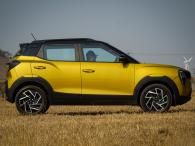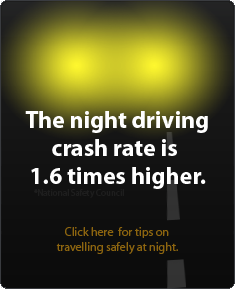News
How important is odometer reading while buying a used car
I'm getting a bunch of other options in Mercedes and BMW with higher kilometres like 30,000 - 50,000km.
BHPian evolution recently shared this with other enthusiasts.
I'm looking at a bunch of options in the used market at the moment. Looking only at convertible / cabriolet options.
One really stands out - it's a 2013 Mercedes with only 5000 km on it. Cost is around Rs 40 lakh.
I'm getting a bunch of other options in Mercedes and BMW with higher kilometres like 30,000 - 50,000km. Range for this is Rs 25 - 30 lakh.
For some reason the first option has always been calling out to me because of such less km on it. It looks like a fantastic deal. I don't care too much about it being an old model, with older looks, etc.
So, would you consider the first one a great deal and something exceptional? Or am I putting too much weightage on the km. Please advice!
Here's what BHPian JoshMachine had to say on the matter:
Given that you are looking at a pre-owned car, I would personally prefer a car which has been run closer to the service schedule running per year basis for that car category.
An 8-year old Mercedes with only 5000 km has spent almost its entire life in a garage/hardly any life on the road - meaning a very high natural entropy of the car’s energy coupled with natural atrophy of the car mechanicals. I would be wary buying such a car.
On the other hand, a relatively higher / adequately run car will most probably mean that the car has been serviced at regular intervals (which can be easily verified).
Here's what BHPian anjan_c2007 had to say on the matter:
A car's usage should be commensurate with its age. Neither too less nor excessive. If one finds a car that has run 75,000-100,000 km on its odo that has been very carefully used, with all service records maintained, it is preferable to one with 25,000-50,000 km done, but abused. Some cars are used by several hands at home or are chauffeur driven. Such cars are best avoided. Not saying all chauffeurs are callous, but checks are needed on such cars. The wheel rims, tyres, driver's seat and suspensions (while test driving) are places that show tell-tale signs of abuse and are the first items to be affected. The cars that have done 25-30,000 which you have stated also need consideration upon merits.
My nephew who just bought a 2016 Chevrolet Volt in Santa Clara, CA says that most cars in the US in the used car market of this age have done 100,000 plus miles. And at this stage these are selling like hot cakes due to the unprecedented short supply of new cars.
Here's what BHPian androdev had to say on the matter:
Don't rule out buying a new car. You might find a good deal on a new car itself. Or you can buy a new Audi A3 cab instead of a used E class cab.
When it comes to buying a used car, knowing the genuine history of the car is the most important thing. This is extremely difficult as cheating and withholding information is the norm in our country.
If you want to be efficient about buying a used car, don't chase good deals instead look for good cars. The very first elimination criteria is to ask for complete service history at the authorised service centre (ASC). ASC will provide you this only if the current owner authorises them to share it with you. I won't go near any car unless I do this as a first step. You would be surprised to know how rare it is to get such a simple and obvious request as this being fulfilled.
If the car has periodic services done without any gaps (1yr or 10K km intervals) with or without usage, lockdown or no-lockdown, you have a candidate to shortlist. Go through the full service history on their computer to ensure there are no unusual service jobs (accidents, repeated attempts to repair, etc.)
Next elimination criteria is to check the latest insurance policy. It should have "No Claims Bonus" discount of 50% if the service history shows no insurance claims, if not the car has been fixed outside. If there are claims in the service history, it should be basic stuff like bumper/fender-bender repairs and not any major collision stuff. It boggles my mind if someone says there is no valid insurance.
Trust me, 99% of the cars in the used car market that are available to average public don't meet these two simple criteria. The good cars are usually sold to friends and family and rarely make it to the open market. They also don't sit for too long waiting for a buyer. The talk of Odo meter reading and visual inspection that we normally do is just throwing dice when it comes to luxury cars.
I can share another tip, haven't used it myself but it might be a good strategy :-) Shortlist a car from the open market and take it to the ASC for inspection and service estimate. Make friends with the service advisor and tell him you are looking for a clean and well-maintained car of the same model. He could be an excellent source for clean cars. These guys would know niche category cars very intimately.
Don't rule out a new car. Have patience if you are looking for used car. If you find the right car, buy it without delay by paying whatever reasonable premium is being asked for.
Here's what GTO had to say on the matter:
Guys, keep in mind that he is talking about convertibles. It is absolutely normal for niche cars, off-roaders, superbikes, classic cars & superbikes to have very low running. My own '97 Jeep is now more like a toy and probably does just 500 - 1000 km a year. There are many Harley-Davidson & Ferrari owners who have the same kind of low usage.
As long as the car is clean, you get a full PPI done and follow our used car checklist, you should be okay.
Check out BHPian comments for more insights and information.




















